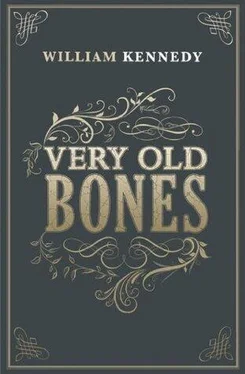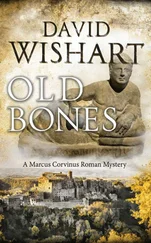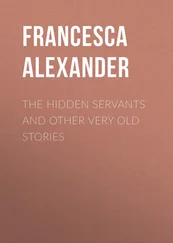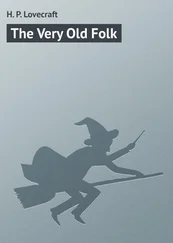When I first came to live at the Lake House in 1953, Molly drove me with my baggage, helped settle me into the cottage, helped Alice Shugrue cook dinner for us all, and when Molly was leaving to go home she presented me with forty ten-dollar gold pieces to help finance my life while I waited for my survival advance from Walker Pettijohn. My manipulation of the Meriwether papers had pleased Pettijohn so much that when he learned I was neither dead nor dying he turned me loose to edit the fustian out of a pop-scholarly study of the love theories of Lucretius, Ovid, and Henry Miller.
The gift of gold from Molly was a stunning surprise, not least because it was gold, but also, as I would discover, because she had been hoarding it for two and a half decades, giving it away, five dollars at a time, to relatives and select friends on special occasions.
The August racing meet had ended at the Saratoga track, and most of the Lake House’s last guests had gone home, except for a few couples who would stay through Labor Day; and so Molly really didn’t go home that night. She decided to stay overnight when the Shugrues and I suggested it. This was when I first heard the story of the cedar waxwing, and Walter’s sudden courtship of Molly on that late-summer day in 1935.
I’d been here once before, in the early 1940s, on a long weekend with Peter and Danny Quinn, and knew the place somewhat. But Molly now gave me her own private tour of the grounds and buildings, each weighted with memory
“Right here,” she said of an area now grown over, “was the clock golf that Walter and I had played every day. Here’s where we played croquet and once I beat him. Here’s the path into the bird sanctuary where we used to meet. There’s the boat house where he first kissed me, and there’s the barn that was our dance hall, isn’t it wonderful? And because it’s so away from the hotel we could play our music all night long if we wanted to, and nobody would yell at us for keeping them awake.”
The barn had been a cow barn, sturdily converted to a weatherproof building in the early 1930s. It was a cavernous place with exposed beams, its never-painted dance floor now a challenge because of warped boards. The barn was redolent of raw wood and of the pine groves that bordered it outside, and Molly said it was the purest odor she ever knew, that it always turned her memory to those summer days with Walter; that in eighteen years this perfume of love never changed. The place is really just like it always was, she said, the phonograph still there on its table, and the old records (hundreds loose on shelves and in albums), some so old even I remember playing them on the wind-up Victrola. Some were cracked from careless use, but the Shugrues never threw any away, for this music was as much a part of the history of the place as their guest register. You expected the same records to be there, year after year, even the cracked ones.
Molly took down a pile of them, all scratched, no envelopes to protect them, shuffled through them, and found one. “Here,” she said, and gave it to me to put on the turntable: “When I Grow Too Old to Dream,” by Ray Noble and his orchestra, a waltz. And we sat then in two of the chairs that lined the barn’s walls, and we listened to it all through. Then Molly said, “Put it on again and we’ll waltz,” and so we did. Step, slide, pivot, reverse.
“It was like this,” she said. “Even when others were here watching, it didn’t matter. We were alone in each other’s arms and just with the holding we made our pact of love.”
Step, slide, pivot, reverse, my hand on Molly’s back, her full breasts against me, our thighs touching through her dress and my trousers as we spun around the floor, she so young, and I so beyond age of any number, just keepers of love in our arms, we creating love with our presence, my cheek against hers, her hair touching my eyes. When the music stopped I started it again, and we heard the scratchings and skips of the song and we danced to that too, and then I replayed it again, yet again, and neither of us said anything, nor did we fully let go of one another while I moved the needle back to the beginning. Her hair, its yellow all but gone into gray, was what Giselle’s would be like years from now, her body in its age fuller than Giselle’s.
“Do you love her very much still?” Molly asked.
“I do. As you still love Walter.”
“We are serious people about our love.”
“We love. It’s what we do.”
And then I kissed her as one kisses one’s love, a long kiss, and then I stopped and we held each other, neither of us there, of course, both of us looking at love, of course. And it looks alike sometimes.
I turn the page and I find: But you’re changing, acoolsha, you’re changing from me, I can feel. . Yes, you’re changing, sonhusband, and you’re turning, I can feel you, for a daughterwife from the hills again. . I pity your oldself I was used to. Now a younger’s there. Try not to part!. . For she’ll be sweet for you as I was sweet when I came down out of me mother. My great blue bedroom, the air so quiet, scarce a cloud. In peace and silence. I could have stayed up there for always only. It’s something fails us. First we feel. Then we fall.
“We’ll go make a fire,” Molly said, “and I’ll tell you.”
“Tell me what?”
“I’ll tell you about me.”
I shut off the phonograph and Molly took my arm and we walked to the main entrance of the hotel, up the stairs, and into the main parlor with yesterday’s rustic furniture and scatter rugs and shelves of forgotten books and the great stone fireplace and its stack of wood and old newspapers, and no people but us two, the other guests all in bed. I moved the screen of the fireplace and built the fire. Molly knew where to find the matches and then we sat on the sofa and watched the fire grow, me keeping my distance from her, yet close, close, and we looked at one another and we smiled at what we saw. I had to touch her face, and then her hair, and then her neck, and I had to let my hand move down to her breast and I touched that, and she said, “Yes, do that,” and I felt the softness and the fullness with just that one hand. She touched my face and ran her fingers through my hair, kissed me with the fullness of her mouth, then took my hand and put it back in my lap.
“We must find a way not to be naughty,” she said.
And I read this: I’ll close me eyes. So not to see. Or see only a youth in his florizel, a boy in innocence, peeling a twig, a child beside a weenywhite steed. The child we all love to place our hope in for ever.
“Walter and I made love every day for a week, sometimes twice a day,” Molly said. “The family hardly saw me and they knew, though they didn’t know exactly what they knew. Sarah hated it, scolded me every day, warned me, ‘You’ll be sorry,’ but I didn’t care. Then we all went home and love was over for the time being, though I found ways to meet him. And I did get in the family way. It’d have been a holy miracle if I hadn’t. Me forty-five and him a year older, latecomers both of us to this, but I never told him. He died without ever knowing. When I was two months in I found ways to stay home, said I was sick and I was. We talked often on the phone and he couldn’t understand why I wouldn’t see him, and I always told him, ‘I will see you, I will when I can.’ I stopped eating so the weight wouldn’t show, had a ketchup sandwich once in a while, and tea, and I was weak. Very. Nobody knew. I never let Sarah or my brothers know anything, didn’t even let them see me unless I had a big robe on. And I could never in a million years tell Sarah. She always said after Tommy was born simple that there shouldn’t be any more Phelan children. That was Mama’s idea, of course. Mama stopped sleeping with Papa after Tommy. No more, no more, it’s a sign, I know it. We all heard them fighting about it. Did I want the baby? No. Not for Mama’s reason but because I wouldn’t want any man marrying me for that, could never raise a child alone, and couldn’t ask for help. And so I started to take things to force the birth: medicines, potions, what I’d heard about through the years, pills I saw advertised once, and I knew I could hurt myself. I knew a girl once took a douche of gin and naphtha to get rid of it and she screamed for two hours, all by herself, until they heard her, and she kept screaming until she died. I wouldn’t be that foolish. I tightened my corset as much as it went, but I kept growing. And then I called Mrs. Watson, the midwife, and asked her what a woman had to do if she was alone and the baby came, and she told me. ‘But don’t stay alone,’ she said. ‘Come and see me.’ I doubted I’d be able. I always thought I’d have it alone. Not a soul in the world I could ask for help. Not a soul. First we feel. Then we fall. It was past four months when it came on its own, a boy, and dead. I cut the cord and mopped the blood when I could, never a scream or a moan out of me, can you believe that? In the night it was. No light till it was over with and I wrapped up the blanket and sheet and the towels and all, and put the baby in the steel box from the closet shelf, where I kept some valuables, and went down the cellar and buried it. I don’t know where I got the strength to dig the hole. We don’t know how strong we are, do we? I called the baby Walter Phelan and baptized him with water from the sink in a teacup and he’s down there still, in a far corner of the cellar, with boxes of horseshoes and jam jars on top of him all these years, God forgive me. You’re the only person in the world knows this. God was with the Phelans, don’t you think? He took the baby but saved us from scandal and he let me have my love back. I was well in a week and Walter came and took me down to Keeler’s for dinner and I remember he ordered a half-dozen clams and when they came he started to eat one and at the same time asked me would I marry him right away, not waste another day, and I said I would before the clam got to his mouth. I will marry you a hundred times, a thousand. And I did.” I done me best when I was let. Thinking always if I go all goes. A hundred cares, a tithe of troubles and is there one who understands me?
Читать дальше












